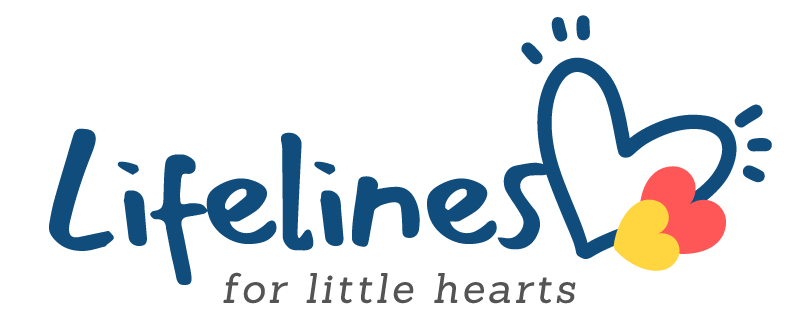
When a child loses a parent or guardian, their world changes in an instant. The person who was their protector, provider, or constant is suddenly gone — leaving behind confusion, heartbreak, and questions they may not have words for. Whether the loss was due to death, addiction, incarceration, or domestic violence, the grief a child carries is deep and complex.
At Lifelines for Little Hearts, we believe no child should have to navigate that grief alone. Through compassionate, trauma-informed therapy, children can begin to understand their emotions, build resilience, and take the first steps toward healing. Therapy is not about “fixing” them — it’s about holding space for their pain, helping them process it, and guiding them back toward safety, self-worth, and hope.
Here are some of the most effective therapeutic approaches used to support children after the loss of a parent or guardian:
1. Play Therapy: Speaking the Language of Children
Children, especially younger ones, often express their inner world through play. Play therapy gives them a safe, symbolic space to work through their emotions. Through role-playing, storytelling, drawing, and games, therapists can observe emotional themes and help children identify and process difficult feelings like sadness, guilt, anger, and fear.
This approach is especially helpful when children don’t have the vocabulary to explain what they’re feeling — or when talking directly about the loss feels too overwhelming. In play, children can communicate at their own pace, and in their own way.
2. Art and Music Therapy: Creative Expression as Emotional Release
Grief lives in the body and in the subconscious — and sometimes, words aren’t enough. Art and music therapy allow children to explore their feelings in a non-verbal, sensory way. Painting, drawing, journaling, songwriting, and rhythm-based activities all create powerful emotional outlets.
For children who have experienced traumatic loss, creative therapies can help lower anxiety, improve mood, and reestablish a sense of control. These methods also support emotional regulation, helping children manage intense feelings in healthy ways.
3. Cognitive Behavioral Therapy (CBT): Reframing the Story
Older children and teens may benefit from CBT, which helps them recognize how their thoughts impact their feelings and behaviors. Many children who lose a parent struggle with distorted beliefs — such as thinking the loss was their fault, or that they could have prevented it.
CBT works to gently challenge those beliefs and replace them with healthier, more realistic perspectives. Over time, this helps reduce anxiety, depression, and self-blame — while building confidence and emotional resilience.
4. Trauma-Focused CBT (TF-CBT): Addressing the Pain Beneath the Grief
When a child’s loss includes traumatic elements — like witnessing a parent’s overdose or experiencing abuse — TF-CBT is often recommended. This evidence-based therapy combines trauma processing with skill-building and caregiver involvement.
Children learn grounding techniques, coping strategies, and gradually work through painful memories in a safe, structured environment. TF-CBT also helps caregivers support the healing process at home, fostering trust and open communication.
5. Group Therapy & Peer Connection: Healing Through Shared Experience
Grief can be incredibly isolating, especially for children who don’t know anyone else going through a similar loss. Group therapy provides a powerful sense of connection and belonging. When children meet others who have also lost a parent or lived with addiction or violence, they realize they’re not alone.
These group settings encourage empathy, validation, and shared hope — helping children build friendships and social skills while learning to express their emotions in a supportive space.
6. Internal Family Systems (IFS) & Inner Child Work: Deep Emotional Integration
For adolescents and preteens, Internal Family Systems and inner child work can be transformative. These approaches help kids explore the different “parts” of themselves — including the ones that feel scared, angry, numb, or abandoned.
By learning to care for these parts with curiosity and compassion, children begin to reclaim their sense of wholeness. IFS encourages a deeper understanding of emotions and builds self-trust, often helping to prevent long-term emotional suppression or behavioral issues.
Why Early Intervention Matters
Grief that goes unaddressed in childhood doesn’t disappear — it just finds new ways to express itself. It may show up later as depression, difficulty with relationships, academic struggles, substance use, or even self-harm. But with early, consistent support, children can learn that their grief does not define them — and that they are worthy of love, healing, and peace.
At Lifelines for Little Hearts, we believe in the power of therapeutic care to change a child’s life. Every session, every conversation, every moment of support is a step toward breaking generational cycles of trauma and giving children the future they deserve.
No child should have to carry grief alone. If you know a child who has lost a parent or guardian, or who is living with the impact of addiction or violence, we are here to help. Reach out to us to learn more about our programs, or consider donating to support therapy for a child in need. Together, we can be the lifeline they’ve been waiting for.
